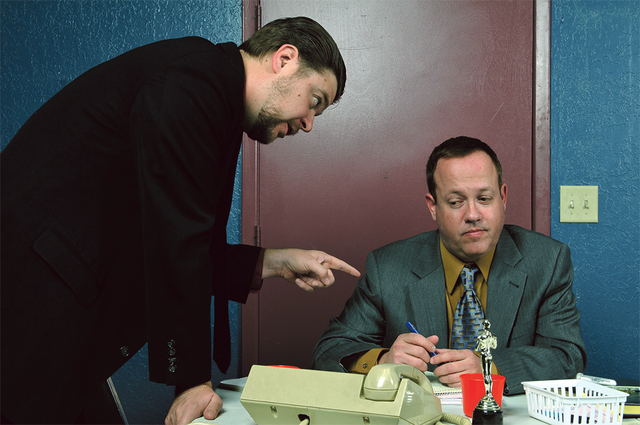Speed-the-Plow
Fridays and Saturdays, 7:30 p.m.Sundays, 2 p.m. Runs through May 20 The Vortex Theatre 2004 1/2 Central SE Tickets: $15247-8600, vortexabq.orgPerformance Review: The Vortex Lines Up David Mamet’s Soulless Film Industry Farce
The Vortex Lines Up David Mamet’s Soulless Film Industry Farce


Aaron Worley as Charlie Fox, Marc Comstock as Bobby Gould
Courtesy of Alan Mitchell

Marc Comstock as Bobby, Julia Harris as Karen
Courtesy of Alan Mitchell








